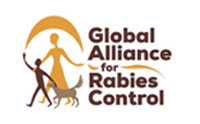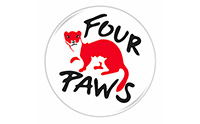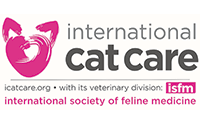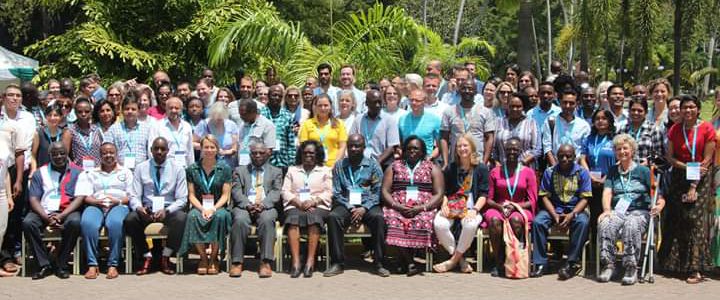
3rd International Conference on Dog Population Management
Venue: Sarova Whitesands, Mombasa Kenya
Download abstract booklet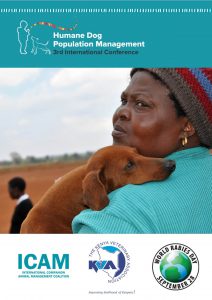
Follow us on Twitter #HDPM2019 #united4dogs
Day 1 Workshops:
Workshop presentations playlist
- HSI mobile technology for rabies control and sterilization clinics. Tamara Kartal and Amit Chaudhari
- Humane Community Development for DPM. Kate Atema. Access ifaw’s Humane Community Development e-learning course and toolkits – providing core content for this workshop.
- Organisation strategic planning. Melissa Liszewski. Access ifaw’s How to Make a Strategic Plan: A guide for Animal Welfare NGOs – providing core content for this workshop.
- Selecting and measuring indicators of DPM impact. Elly Hiby. Watch presentation. Access ICAM (2015) ‘Are we making a difference?’ – publication providing core content for this workshop. Access ICAM impact assessment tool – online tool used during group work to identify indicators and methods of measurement relevant for each DPM scenario.
- Shelter medicine workshop. Nat Lee and Katherine Polak. Access Guidelines to Standards of Care in Animal Shelters, by Association of Shelter Veterinarians – providing core content for this workshop. Access pdfs of Natasha Lee‘s and Katherine Polak‘s Powerpoint presentations.
Day 2 Presentations:
Setting the scene for humane DPM
- Samuel Kahariri. Linking sustainable humane dog population management initiatives to eradication of rabies in developing countries. Watch presentation.
- Samuel Wakhusama. OIE – Tools and opportunities in humane dog population management. Watch presentation.
Perceptions of dogs
- Andrew Rowan. Keynote – Evolution of Human-Dog Interactions in the World over the last 50 Years. Watch presentation.
- Yao Yue. Exploring attitudes and behaviour towards roaming dogs around the world. Watch presentation.
- Elly Hiby. 2019 Update to ICAM’s Humane Dog Population Management (DPM) guidance. Watch presentation. Access ICAM (2019) Humane DPM guide.
DPM tools and strategies
- John Boone. New Collaborative Planning Tools To Improve Rabies And Dog Population Management Outcomes And Cost Efficiencies. Watch presentation.
- Lauren Smith. A systems modelling approach to investigate sustainable dog population management. Watch presentation.
- Oswaldo Santos Baquero. In search of validity and prioritization to guide dog population management in Brazil. Watch presentation.
- Heather Bacon. Dog population management – developing tools to improve dog welfare. Watch presentation.
DPM case studies
- Melania Gamboa Cortes. Dog population management in rabies programmes in Latin America. Watch presentation.
- Luisa Margarita Ramirez Suarez. 1st place winner of the learnings and experiences from the Animal Friendly Cities competition: Bogota, Colombia. Watch presentation.
- Liat Morgan. Dog Population Management – Israel’s unique system. Presentation will be posted post manuscript publication.
- Abdul-Jalil Mohammadzai. Engaging effectively with government to control and eliminate canine mediated rabies in Kabul. Watch presentation.
- Sangita Sapkota. Significant achievement in DPM: The outcome of mandate of Local Government with well defined stakeholders roles and recognized public participation. Watch presentation.
Day 3 Presentations:
Rabies and DPM – plenary
- Louis Nel. Keynote – Global Strategic Plan for the elimination of dog-mediated human rabies. Watch presentation.
- Eric Brum. FAO – The epidemiological principles of rabies control and the RACE against rabies. Watch presentation.
- Andre Coetzer. Capacity building towards rabies elimination: Training professionals, educating children and building community awareness with multiple stakeholders and limited resources. Watch presentation.
- Terence Scott. The Rabies Epidemiological Bulletin: A comprehensive digital surveillance platform supported by a custom-developed data capture device. Watch presentation.
Rabies and DPM – parallel 1
- Amit Chaudhari. Evidence-based rabies programs: How innovative mobile technology has changed the rabies elimination programs in Philippines. Watch presentation.
- Darryn Knobel. Should we be including puppies younger than 12 weeks in mass rabies vaccination campaigns? New evidence raises safety concerns in females. Watch presentation.
- Emmah Kwoba. Dog health and demographic surveillance survey in Siaya County: Implications for rabies control. Watch presentation.
- Lieza Swennen. Innovative approaches to achieving rabies elimination in Malawi by 2025. Watch presentation.
- Martin Mboloi. Makueni County rabies elimination program: A pilot program for the rabies elimination in Kenya. Watch presentation.
- Karma Rinzin. Dog Population Management Strategy in Bhutan: Past, Present and Future. Watch presentation.
- Tamara Kartal. Successful dog management programs across India. Watch presentation.
- Sanjay Singh. Human Health Benefits of ABC Work in Jaipur, India. Watch presentation.
- Ali Mohammed Elkony. Integrated Bite Case Management, A Step Forward To Eliminate Dog Mediated Human Rabies – Egypt, 2018. Watch presentation.
DPM case studies Europe and DPM tools – parallel 2
- Samantha Gaines. Comparing the welfare of dogs in two different rehoming centres: England vs Malawi. Watch presentation.
- Elly Hiby. Evaluation of DPM; learnings since publication of the ICAM “Indicators” guide and future tools. Watch presentation. Access ICAM (2015) ‘Are we making a difference? A guide to monitoring and evaluation of DPM interventions’
- Melania Gamboa Cortes. Barkyard; mobile app to promote responsible ownership – a case study from Latin America. Watch presentation.
- Samantha Green. Using mobile phone apps to project manage and assess impact of a Dog Population Management program in Negombo, Sri Lanka. Watch presentation.
- Valerie Benka. An update on non-surgical fertility control for dogs and a new tool for ethical decision making in field projects. Watch presentation. Access ACC&D’s Practical guidance for ethical decision-making in field projects for animal welfare.
Dogs – people – wildlife conflict and collaborations for rabies elimination – parallel 2
- Adriana Pisano Beaumont. Exploring Dog-Human Relationships in First Nations communities: A decolonizing framework. Watch presentation.
- Jess Bracks. Ethical management of human-derived conflict with wild and domestic dogs: case studies from Oceania. Watch presentation.
- Quixi Sonntag. Southern African regional collaborations and capacity building for dog-mediated rabies elimination by 2030. Watch presentation.
Perceptions and human behaviours in DPM
- Katherine Polak. Public attitudes and behaviors towards dog meat consumption in Cambodia – a risk to public health, animal welfare, and humane dog population management. Watch presentation.
- Quixi Sonntag. Changing perceptions about dogs and rabies in a rural community in South Africa. Watch presentation.
- Adrienne Olivier. A holistic approach to improving animal welfare and changing people’s attitudes towards dogs in South Africa. Watch presentation.
- Melissa Savage. Understanding how people make decisions (and how your organization can ease the friction). Watch presentation.
About the Conference
Dogs play important and valuable roles as companion and working animals around the world, but managing their populations is still a challenge for many countries. Unmanaged populations can be a concern for transmission of rabies and other zoonoses, road traffic accidents, conflicts with people, livestock and wildlife, and welfare of the dogs themselves. Humane dog population management (DPM) improves the quality of life for dogs, people and the environment. While there is no single DPM intervention that will work for all situations, success and innovation are happening around the world, and this conference provided a professional opportunity to learn how these experiences could improve your programmes.
The 3rd International Humane DPM conference brought the public sector and NGOs together with specialists in animal welfare, animal health, public health and education, ecologists, economists and social scientists. It featured best practice presentations from leading organizations and academics as well as an international perspective from ICAM, OIE and FAO. The conference provided a platform for sharing DPM learnings, revealing the role of data in evidence-based design and evaluation, and networking between stakeholders to build new perspectives and opportunities. Workshops provided an opportunity to learn more about new tools for improving programme planning, implementation and veterinary services. Delegates left enriched with new insights into population dynamics, management and policy; practical knowledge to support implementation; and enhanced motivation to bring benefits to dogs, people and the environment through humane and sustained dog population management.
Further Information
If you need any more information please email info@icam-coalition.org or use our online form.




